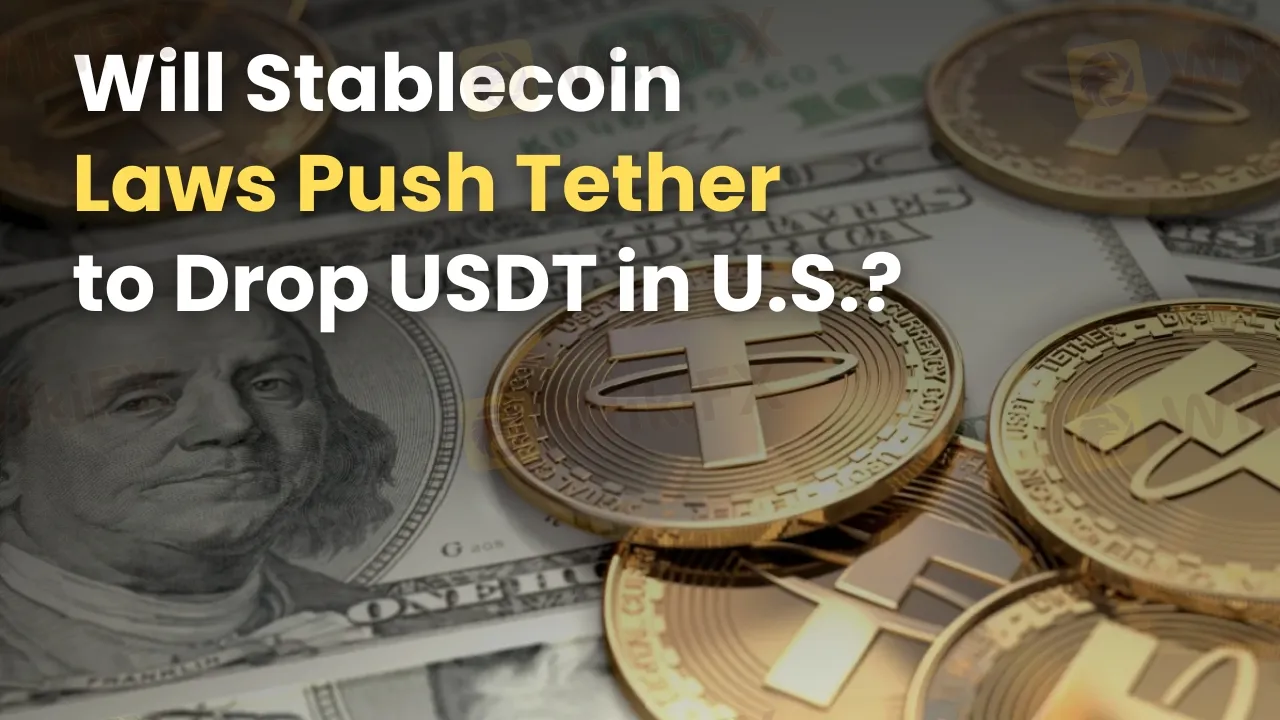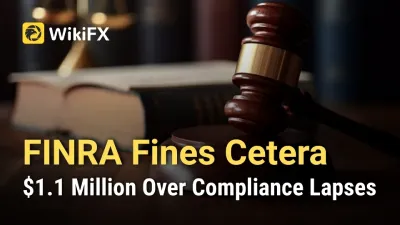Scrolled, Clicked, Lost RM166,000: Factory Worker Trapped by Online Investment Scam
A woman employed at a cake factory has lost her life savings after being lured into a fictitious investment scheme by a man she met on social media
简体中文
繁體中文
English
Pусский
日本語
ภาษาไทย
Tiếng Việt
Bahasa Indonesia
Español
हिन्दी
Filippiiniläinen
Français
Deutsch
Português
Türkçe
한국어
العربية
Abstract:Tether CEO Paolo Ardoino discusses stablecoin legislation, USDT’s U.S. ban potential, and a new U.S.-compliant stablecoin amid regulatory shifts.

As U.S. stablecoin legislation heats up, the spotlight‘s on Tether, the crypto titan behind USDT, the world’s top stablecoin. With whispers of bans and regulatory hurdles swirling, you‘d expect Tether to feel the squeeze. Not so, says CEO Paolo Ardoino. In a Friday sit-down with Decrypt, he waved off worries about USDT’s U.S. fate, revealing a savvy plan to stay ahead of the curve.
Stablecoins like USDT—pegged to the U.S. dollar—offer crypto traders a steady lifeline, sidestepping volatility without needing fiat cash. Tether‘s USDT, boasting a $144 billion market cap, dominates the space, fueling billions in daily trades. But with U.S. lawmakers drafting strict stablecoin legislation, Tether’s American playbook is under scrutiny.
Ardoino‘s counter? A fresh U.S.-tailored stablecoin designed to fit pending regulations. “We believe that our main stablecoin is perfected for emerging markets, but we can craft a payment stablecoin that works for the U.S.,” he explained. “We need to have two products with two different value propositions.” It’s a strategic pivot, balancing Tethers global reach with a nod to U.S. compliance.

On Capitol Hill, the House‘s STABLE Act and Senate’s GENIUS Act are racing forward, both eyeing foreign issuers like Tether, based in El Salvador. The bills demand adherence to anti-money laundering rules under the Bank Secrecy Act and deep reserve audits—pain points for Tether‘s critics. The company dodged a full audit, sparking years of debate over USDT’s backing. Some bet Tether would flee the U.S. rather than comply.
Ardoino fires back, claiming Tether leads in compliance, especially with law enforcement ties. He‘s in talks with “Big Four” firms for an audit, though their caution mirrors the stablecoin frontier’s uncertainty. Scoffing at rivals banking on Tether‘s U.S. retreat, he quipped it’s “the smell of desperation.” Tether‘s not folding—it’s fighting.
Speaking from Cantor Fitzgerald‘s New York hub—where the firm, tied to U.S. Commerce Secretary Howard Lutnick, guards Tether’s Treasuries—Ardoino radiated resolve. Yet, he‘s not tweaking USDT for U.S. rules. His focus stays on emerging markets, where USDT thrives. “We don’t think there is anything particularly problematic” with the bills, he said, brushing off the regulatory buzz.
He‘s optimistic USDT will linger in U.S. secondary markets, vital for remittances. The Senate bill limits non-compliant issuers from direct U.S. sales, while the House’s tougher stance bans trades on platforms like Coinbase two years after enactment. Lawmakers must align these drafts before a bill lands with President Donald Trump—if it clears Congress.
Neither bill targets non-custodial DeFi trades on platforms like Uniswap, a potential USDT loophole. Still, Tether‘s felt regulatory ripples elsewhere—Binance axed USDT in Europe over EU rules. Ardoino’s fix? Backing compliant local stablecoins, a tactic hes echoing in the U.S.
Long-term, he sees USDT stepping back from U.S. and European dominance, rooted instead in emerging markets. For now, Tether‘s tackling stablecoin legislation head-on, blending a new U.S. stablecoin with USDT’s global clout. It‘s a high-stakes dance, but Ardoino’s betting Tethers got the moves to outlast the skeptics.

Disclaimer:
The views in this article only represent the author's personal views, and do not constitute investment advice on this platform. This platform does not guarantee the accuracy, completeness and timeliness of the information in the article, and will not be liable for any loss caused by the use of or reliance on the information in the article.

A woman employed at a cake factory has lost her life savings after being lured into a fictitious investment scheme by a man she met on social media

Entering 2026, diverging central bank policies are reshaping global FX and bond markets, while economic momentum shifts from developed economies toward India. Meanwhile, an upcoming leadership transition at the US Federal Reserve presents a key underappreciated risk that could trigger renewed volatility in interest rates and the US dollar.

FINRA fines Cetera $1.1 million for supervisory and AML compliance failures spanning several years, citing rule violations and weak oversight systems.
FINRA fines Cetera $1.1 million for supervisory and AML compliance failures spanning several years, citing rule violations and weak oversight systems.
